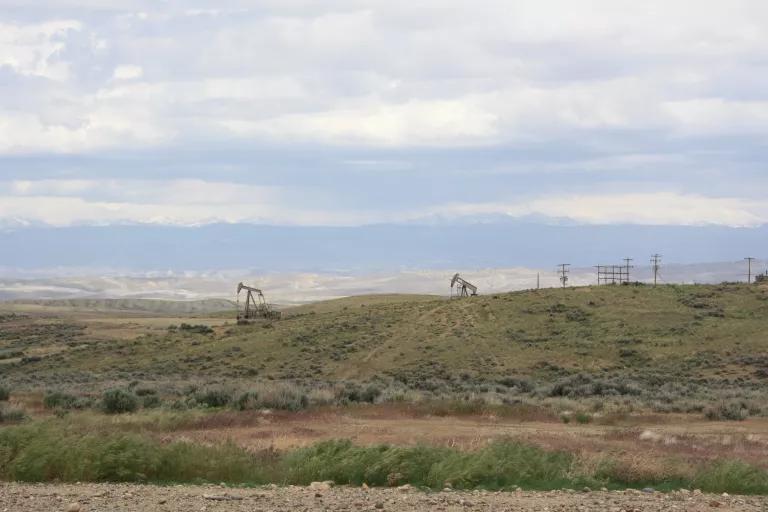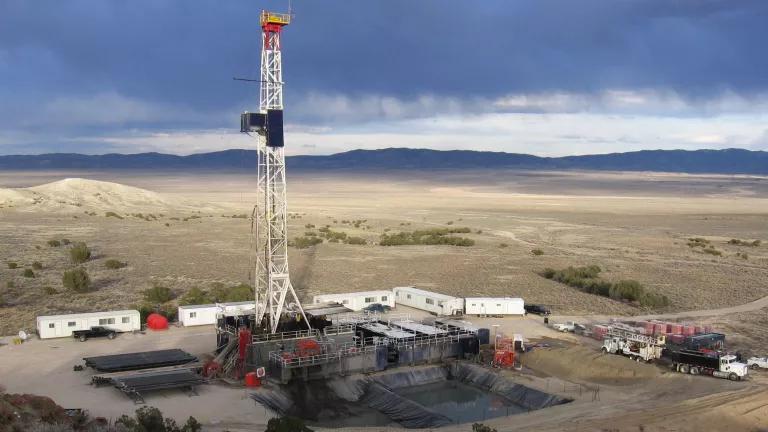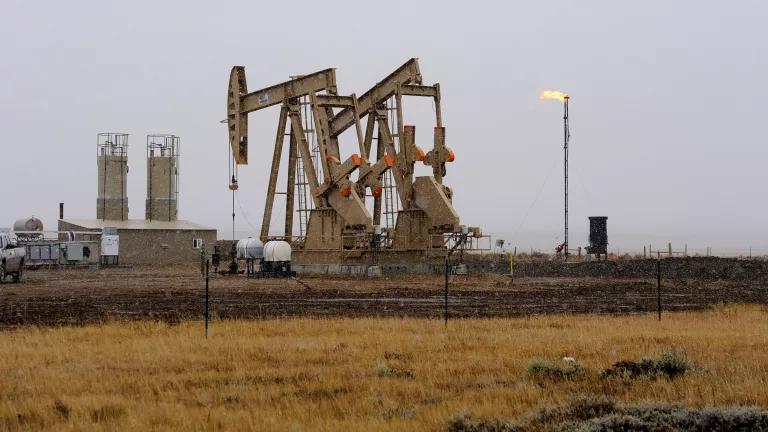Stop Stiffing Taxpayers to Enrich Oil and Gas Bidders
Senator Tester introduces bill to end noncompetitive leasing on BLM lands.

Montana’s Senator Jon Tester (D) announced today his intent to introduce the Leasing Market Efficiency Act, that would close an oil and gas industry loophole in the Bureau of Land Management’s (“BLM”) leasing process and end a practice that cheats taxpayers and public land users, and is detrimental to our public lands.
At issue is a little-known procedure called “noncompetitive leasing.”
Typically, industry nominates oil and gas parcels and they’re offered at competitive auctions, which is supposed to ensure that companies pay fair market value for oil and gas resources the public owns. However, after an auction, any unsold parcels of land—lands that companies deemed unworthy of purchasing—remain available for noncompetitive leasing. Under noncompetitive leasing, any unclaimed leases can be acquired for as little as $1.50 per acre and a small filing fee.
The process through which parcels are selected for leasing makes this procedure ripe for abuse, which is why Tester’s bill is so critical. Too often, and particularly in Montana, speculators will wait for parcels to receive no bids during the competitive auction process, and then scoop up leases for very little money. Noncompetitive leases rarely yield oil production or generate royalty revenue—a Congressional Budget Office study found that a scant 3 percent of noncompetitive leases issued from 1996 to 2003 were developed by the end of their 10-year term. But the leases tie up the land for important public uses like recreation and hunting.
So why is it a problem that companies are acquiring the rights to large amount of public lands that will never be developed for oil and gas? For one, significant staff time and money is required to prepare lease auctions and issue leases. If not for noncompetitive leasing, the Bureau could shift limited resources from its oil and gas program to its conservation, recreation, or renewable energy divisions. Also, when land is leased for oil and gas the BLM will not designate that land for other valuable public purposes, such as wilderness or wildlife habitat.

Oil and gas on public lands
Taxpayers for Common Sense (TCS) has dug into noncompetitive leasing because—as you might guess—it makes zero sense for taxpayers. In one case study it examined, a single firm, Highlands Montana, had leased over 113,000 acres of federal public land in Montana since 2018. The 227 leases comprising that acreage cost the company approximately $187,000 through the noncompetitive process. If they had bid on that same acreage for the average amount paid for leases in Montana, taxpayers would have received an additional $3.6 million, with half going to the federal treasury and the other half to the state. If Highlands Montana had made the minimum bid under the competitive leasing process, taxpayers still would have earned an additional $246,000.
This flawed process hurts Montanans and all U.S. taxpayers. It’s time to move away from leasing our public lands for fossil fuel development. But as long as we still lease our lands for oil and gas, the public should receive its fair share for the resources. We’re grateful for Senator Tester’s leadership to end this wasteful practice and will urge Congress to make it law.




